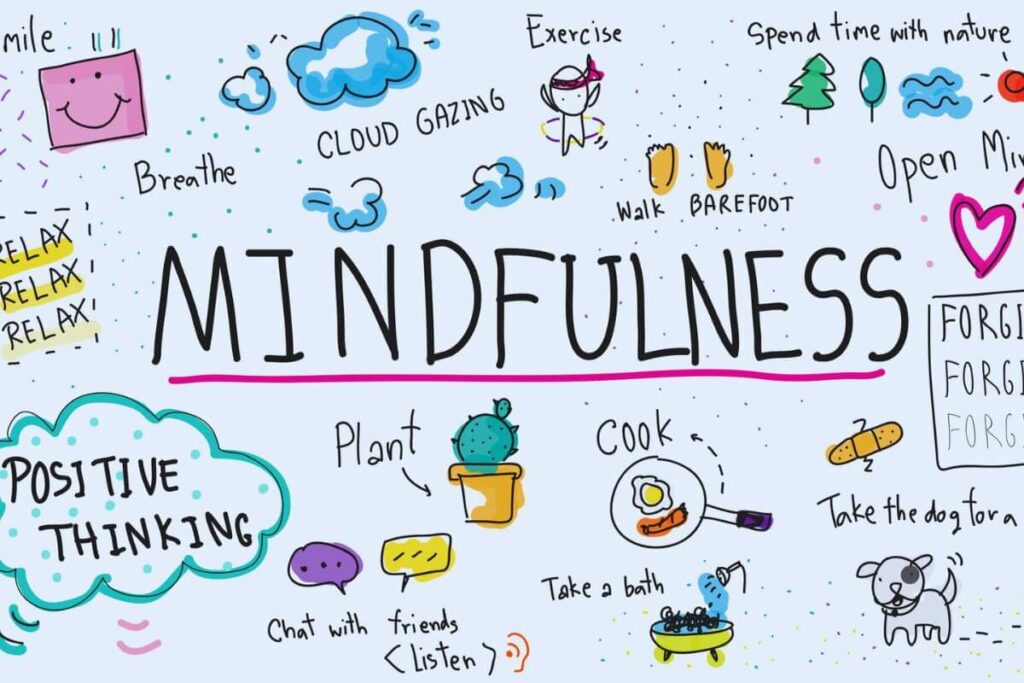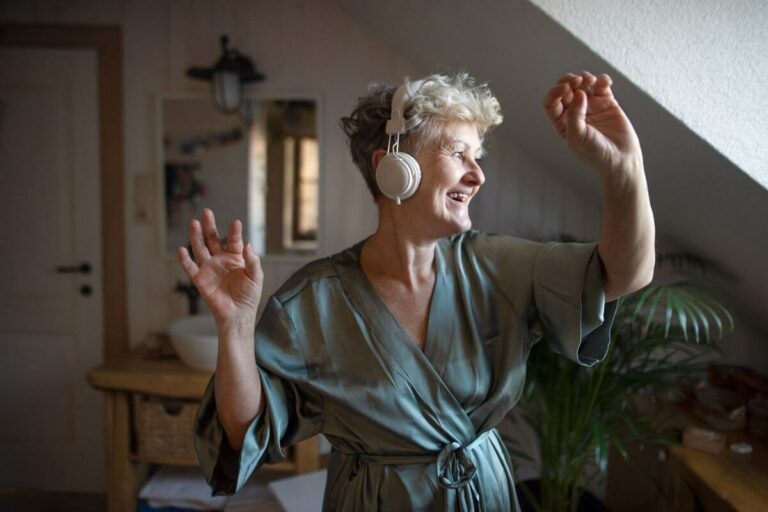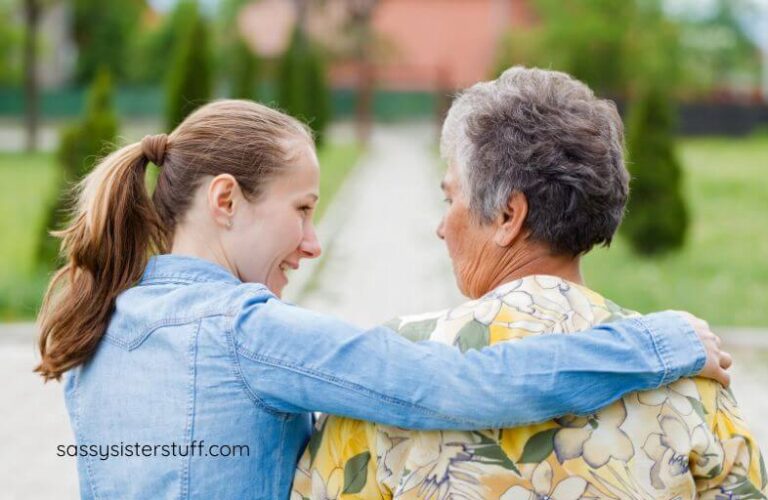Mindfulness Matters: How Mindfulness Changed My Life
The first time I heard about mindfulness, I didn’t understand how it could be so important. In fact, in my own life, I wasn’t sure how I could possibly find extra time for mindfulness! I thought there was simply no more time for guided meditation, mindfulness meditation, daily meditation practice, yoga — or anything new. I wasn’t really sure what any of it meant but I knew I didn’t have time for one more thing in my life.
Then I learned more about it in my personal counseling sessions — and within weeks I was developing a regular mindfulness practice and quickly realized the benefits of mindfulness. Over the years since I first learned about present moment awareness, my heart rate has gone down, my emotional regulation has improved, and I’ve seen a change in my chronic stress. I know how to respond instead of react, and I have more patience. I’ve seen how mindfulness changed my life in significant ways.
In this article, I am going to share why mindfulness matters and how mindfulness can change your life, too!

Key Takeaways
- Present moment awareness helps reduce stress, lower blood pressure, improve chronic pain, improve sleep quality, and much more to improve your quality of life.
- There is an enormous amount of research by renowned psychiatrists, philosophers, writers, and researchers to prove the effectiveness and value of mindfulness.
- Meditation, yoga, journaling, affirmations, breath awareness, body scans, gratitude, and other mental health practices are aligned with the practice of mindfulness to improve mindset, responses, and reactions to life events.

What is Mindfulness?
Jon Kabat-Zinn, an emeritus professor of medicine at the University of Massachusetts Medical School, is a leading expert in mindfulness. He is the founder of the Mindfulness-Based Stress Reduction (MBSR) Clinic and Center for Mindfulness. An avid proponent of mindfulness training, he teaches people how to use mindfulness practices to improve their lives.
Mindfulness practices can help with stress, blood pressure, chronic pain, sleep, anxiety, workloads, and more. We’ll learn more about him below, but this gives us a good starting point to understand the meaning of mindfulness.
Mindfulness is the practice of intentionally focusing on the present moment. It can be practiced during meditation or during everyday activities, like cooking, cleaning, or walking. A good daily practice is to remain mindful at all times. (That’s my definition:)
Mindfulness.org defines mindfulness as:
Mindfulness is the basic human ability to be fully present, aware of where we are and what we’re doing, and not overly reactive or overwhelmed by what’s going on around us.
Mindfulness is a quality that every human being already possesses, it’s not something you have to conjure up, you just have to learn how to access it.
MerriamWebster.com defines mindfulness as:
1: the quality or state of being mindful
2: the practice of maintaining a nonjudgmental state of heightened or complete awareness of one’s thoughts, emotions, or experiences on a moment-to-moment basis
Since I’ve learned how mindfulness changed my life over the years, I no longer think of it as “something extra” in my life. I practice it all the time — focusing on even the small things around me, how my body feels, my breathing, my emotions, etc. Life’s challenges don’t seem so big and horrible when my focused attention is on something else:) Mindfulness is a way of living, not something extra.

How Mindfulness Changed My Life
I am not an expert in psychological health, brain regions, or the nervous system, so I will leave those topics as related to mindfulness to others. But I am an expert in real-life application and experience. And I know that mindfulness helps improve your mental health and overall quality of life. I’ve personally experienced it and helped others learn and understand the practice.
For example, when I am living mindfully, I have a lot more control over my catastrophic thoughts, such as wondering if my husband has been in a horrible car accident when he is 15-minutes late getting home from work. Or wondering if a sociopath has kidnapped my granddaughter when I can’t reach her on the phone after school.
Living with present moment awareness has helped me learn to not stress about things I have no control over. When having an outside party, I came to realize years ago that it makes no difference if I worry about the weather. I simply need to make a backup plan and not stress over the weather. Whatever happens will happen and I’ll be prepared for it.
However, when something throws me off and causes me to worry or stress, I know how to fix it. I start with my breathing — I slow it down, breathe in and out, count, and feel my breath down to my tummy. Then I do a body scan by closing my eyes and focusing on each part of my body — starting at the top of my head and moving down through my body to my toes.
These practices will help my body relax, which helps my mind relax. Plus, it keeps my mind off whatever is worrying me.
I have also found it’s helpful to keep to-do lists as part of my mindful living. My lists help keep me focused on what I’m supposed to be doing without getting distracted by life. I tend to have an ADHD brain so learning to be mindful has helped me stay more organized and disciplined. (However, sometimes the ADHD still wins!) I have dozens of notes in the NOTES APP on my phone, plus notebooks on my desk to keep my thoughts straight.
As part of my mindfulness practice, I have also begun to use positive affirmations. When I struggle with something, I write affirmations to help me change my mindset. I’ve written hundreds of affirmations for issues such as sleep, self-care, letting go, peace of mind, confidence, and even daily mindfulness affirmations to improve your life.
These affirmations help improve my mindset which in turn helps me make better decisions and live my most authentic self.
My relationships have even changed since I started practicing mindfulness. I pay better attention to what the other person is saying and respond with authentic thoughts and feelings. This authenticity and compassion have enriched my relationships. It also enabled me to have an eye-opening talk with my daughter about our relationship.
Since developing better mindful awareness, I now pay closer attention to the sights, sounds, smells, feels, and tastes of things — from cooking to putting lotion on my body to running through the rain to my mailbox. I’ve learned to enjoy how the five senses enrich everyday, real-life experiences.
I say, “Good morning!” to myself to begin my daily routines. It’s a great first step to mindfulness and gets the rest of my day off to a great start!
To be honest, mindful meditation is often a part of learning to be mindful. However, as someone with an ADHD brain, meditation is pretty hard for me. But I have genuinely tried it.
Mindful meditation is mental training to teach you to slow down your thoughts, let go of negativity, and practice mindfulness. After years of trying, combined with affirmations and a practice of gratitude, I think I’ve learned to maintain a positive attitude in my practice of mindfulness but I still can’t meditate very well.
After I was assaulted in 2017, I started suffering from panic attacks. My husband and I walked into a Grandparents’ Day at my grandson’s school and started doing the assigned activity with him. As the room filled with other grandparents and people were crowded around me, I started sweating and feeling like my heart was going to pound out of my chest.
Back at that time, I was not practicing mindfulness regularly, so my husband had to rush me out of the classroom. But today, I would be able to do a little bit of breath work, a body scan, and some counting and I would likely be able to stay in the classroom.
I’m sure I’ve missed something, but I hope you have developed an idea of how mindfulness changed my life. Mindfulness is a good reason to help you sleep better, reduce anxiety and stress, strengthen your immune system, reduce chronic pain, improve risk of heart disease, reduce panic attacks, and improve people’s lives dramatically.
Do you see the many benefits of mindfulness and meditation? Becoming mindful will change your life! And there is a lot of science behind the practice of mindfulness, too!

The Science Behind Mindfulness
Again, this is not my area of expertise, but I want to share a bit about the science behind mindfulness, so you know I’m not crazy.
In addition to the work done by Jon Kabat-Zinn, Richard Davidson, Professor of Psychology and Psychiatry at the University of Wisconsin–Madison and the Founder and Director of the Center for Healthy Minds, conducts brain research that supports the studies of mindfulness.
It broadly focuses on the neural bases of emotion and emotional style as well as methods to promote human flourishing. This includes meditation and related contemplative practices such as mindfulness.
Richard Davidson does extensive work with the human brain and connects it to the psychiatric component of wellness. He has studied people from birth through old age and has tens of thousands of hours of experience and data.
Richard Davidson did a TEDx event in 2019, How Mindfulness Changes the Emotional Life of Our Brains, in San Fransisco. His talk currently has 3.5 million views; in his talk, he “discusses how mindfulness can improve well-being and outlines strategies to boost four components of a healthy mind: awareness, connection, insight, and purpose.”
Jon Kabat-Zinn has used his research to develop a website, books, downloads, videos, classes, and a mindfulness APP to help anyone who wants to learn how to become more mindful. You can find all this resources on jonkabat-zinn.com but I highly recommend the THE JKZ MEDITATIONS APP.
Additionally, his mindfulness-based stress reduction program is now being offered online as an 8-week program for people who would prefer an online program. The program is a non-pharmacological therapy that helps people reduce stress, anxiety, and depression through mindfulness cognitive therapy, yoga, meditation, body awareness, patient education, group support, and exploration of behavior patterns.
Reading the Eckhart Tolle book, A New Earth, in 2008 was the first time I engaged with mindfulness. I was going through a rough time and a counselor recommended it, although it was also an Oprah Book of the Month.
Eckhart Tolle is a profoundly deep-thinking spiritual leader and mindfulness teacher who focuses on emotional responses and conscious awareness. He combines his spiritual practice and scientific evidence to help you create a better tomorrow. I won’t say it’s an easy read, but it’s an effective approach and it brought me much inner peace.

Final Thoughts: How Mindfulness Changed My Life
Mindfulness has obviously become a big part of my life and I have experienced a huge positive change in my mental health and spiritual health in the past 16 years. I continue to learn about mindfulness and the peripheral practices like gratitude, journaling, affirmations, yoga, body scans, breath awareness, my five senses, and others. And I will continue to learn about new research and practices.
I hope you have found this article helpful and will explore, or continue to use, mindfulness as a way to improve my health, find inner peace, and enjoy happiness in your life.
You may enjoy these Related Articles:
- 12 Benefits of Mindfulness: Mind, Body, and Soul
- 90 Mindfulness Journal Prompts to Improve Your Life
- 65 Best Miracle of Mindfulness Quotes for 2025
Love to ALL! ~ Susan







